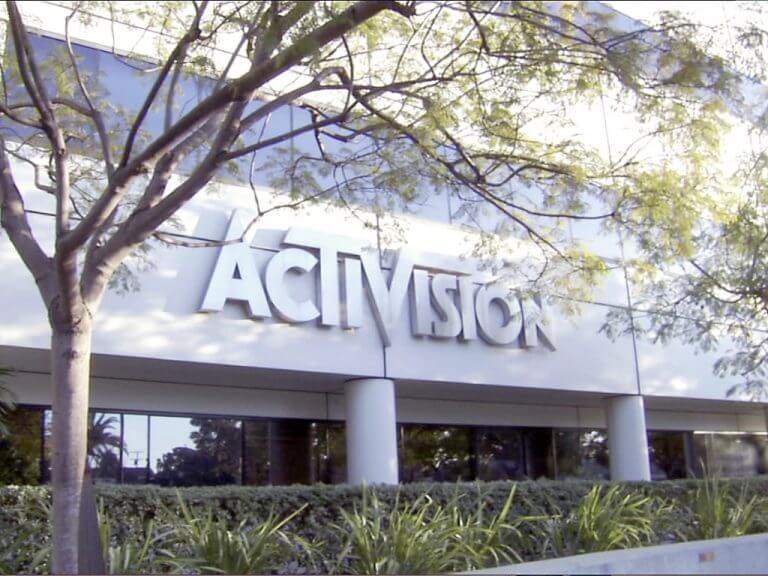Microsoft shook up the video games industry yesterday by announcing the acquisition of Activision Blizzard for $68.7 billion. This is the company’s largest acquisition ever, and Microsoft has already announced a reorganization of its gaming leadership team ahead of the deal’s expected closure in the company’s fiscal year 2023.
Overall, Activision Blizzard is almost 10 times more expensive than what Microsoft spent to acquire ZeniMax Media/Bethesda, and it’s safe to say that pretty much no one expected Microsoft’s biggest purchase to be a gaming company. The Redmond giant previously had acquisitions talks with Pinterest, Discord, as well as Tiktok, but Activision Blizzard is a real juggernaut with 10,000 employees and 400 million users spread across several game studios and gaming organizations like Major League Gaming.
Activision Blizzard owns some of the most popular gaming franchises such as Call of Duty, Diablo, and Candy Crush, but the company’s reputation definitely took a hit in recent years. Despite blockbuster sales every year, there’s a growing sentiment that the annualized Call of Duty franchise should hit pause, similar to what Ubisoft did with Assassin’s Creed a couple of years ago. Recently, Activision Blizzard has also been in the spotlight for a sexual harassment lawsuit and complaints from employees complaining about its toxic work culture, which both contributed to the company’s stock price taking a hit.
In an interview with VentureBeat published yesterday, Bobby Kotick, the veteran CEO of Activision Blizzard justified the deal with Microsoft by pointing out that his company needed to strengthen its position in an incredibly competitive environment where new actors with very deep pockets are taking gaming increasingly seriously.
“As you look at the increased competition between Tencent, and NetEase, and Sony, and now you have Google and Amazon, and Apple, and Facebook, and Microsoft and Netflix. We were looking at over the course of the next couple of years, and starting to realize that we need thousands of people to be able to execute against our production plans. We need them in disciplines like AI and machine learning, or in data analytics, or in purpose-built cloud and cybersecurity — and that we just don’t have. And that competition for that talent is expensive, and really hard to come by.
According to Kotick, he had been in touch with Microsoft CEO Satya Nadella and head of gaming Phil Spencer over “many, many years,” and the latter eventually convinced him that “they clearly were the best partner.” In the same interview, Kotick also denied that the sexual harassment investigation had any impact on Activision Blizzard’s stock price or pushed the company to make a deal with Microsoft, but Bloomberg’s Dina Bass has a different story.
According to this separate report, Microsoft saw an opportunity with Activision’s ongoing troubles and Kotick’s being in an increasingly uncomfortable position as the CEO of the company:
A person familiar with the discussions, who was not authorized to speak publicly, said Microsoft looked at Activision’s situation, given all the negative attention and pressure on Kotick, and wondered if the beleaguered CEO would be willing to do a deal.
Kotick initially didn’t want to sell, according to another person familiar with the talks, and also put the word out to see if any other company would outbid Microsoft. But at that point, Kotick had little leverage with his board amid the ongoing public scrutiny at his company.
Prior to the acquisition, Kotick reportedly considered acquiring video games publications that could have helped the company leave the bad buzz territory, according to The Wall Street Journal. “Mr Kotick has been eager to change the public narrative about the company, and in recent weeks has suggested Activision Blizzard make some kind of acquisition, including of gaming-trade publications like Kotaku and PC Gamer, according to people familiar with him,” the report says.
Microsoft announced yesterday that Kotick will remain CEO of Activision Blizzard during the transition period, and the company will continue to operate autonomously until the transition is complete by June 2023. “Once the deal closes, the Activision Blizzard business will report to Phil Spencer, CEO, Microsoft Gaming,” the Redmond giant explained yesterday. What will happen to Bobby Kotick once Microsoft owns Activision Blizzard? According to The Wall Street Journal, the current CEO is expected to leave the company with a $390 million payout.


